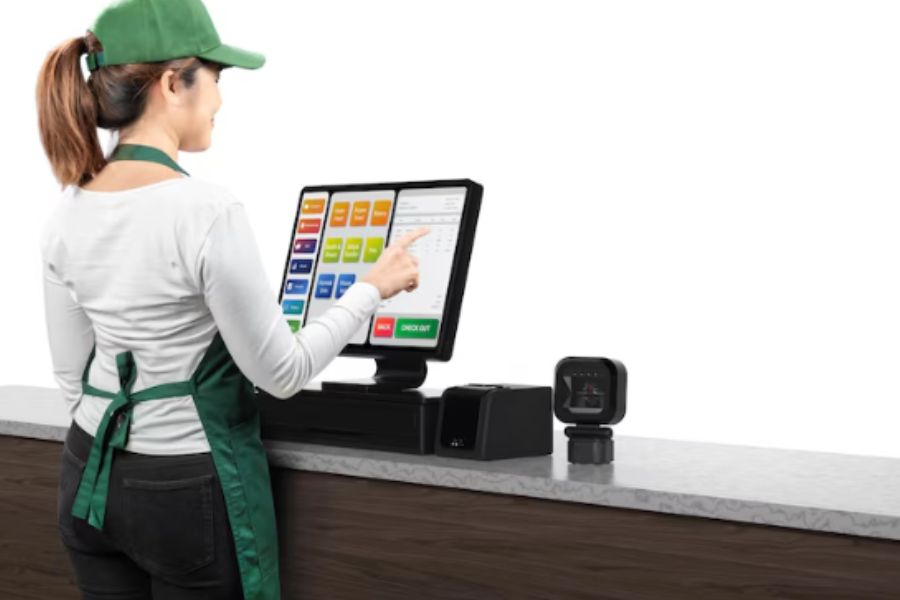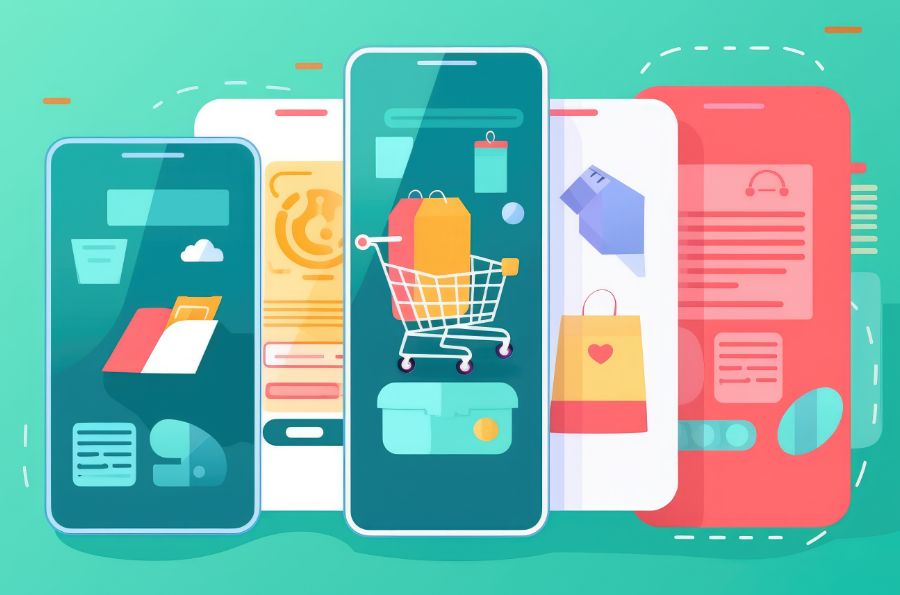Using separate software for different aspects of your retail operations is quickly becoming a thing of the past. With the rise of all-in-one software solutions, retailers can now manage everything from inventory and sales to customer relationships and reporting in a single, integrated platform. This shift has helped many businesses streamline their operations and improve efficiency, but does it always come with the best outcomes? In this article, we will examine the pros and cons of all-in-one software for retail shops, so you can decide if this approach is the right fit for your business.
Highlights:
- All-in-one software for retail shops simplifies operations by integrating essential functions like inventory, CRM, and analytics into a single system, boosting efficiency and decision-making.
- While convenient, all-in-one solutions may lack the specialized features of standalone tools and could involve higher initial investment costs.
Overview of All-in-One Software for Retail Shops
The Concept of All-in-One Software for Retail
An “all-in-one” software for retail shops is designed to combine several vital business functions into a single platform, eliminating the need for separate systems.
These solutions typically integrate features such as point of sale (POS), inventory management, customer relationship management (CRM), employee scheduling, financial reporting, and more.
The idea is to simplify the business workflow by consolidating tasks and providing seamless interaction between various aspects of retail operations. This allows retailers to track sales, manage stock levels, monitor customer interactions, and generate reports—all from one unified system.
The Shift from Separate Solutions to All-in-One Software
Historically, retail businesses relied on a range of specialized software tools to manage different aspects of their operations. Retailers often used one system for sales transactions, another for inventory management, and yet another for customer relationship management.
While these tools could be effective individually, managing them together often led to inefficiencies. Data silos, integration issues, and the need for constant updates across platforms became common challenges for businesses trying to stay on top of operations.
The growing complexity of modern retail, with an increasing focus on multi-channel sales, customer data, and real-time insights, has driven the trend toward all-in-one software solutions. Retailers recognized the need for systems that could streamline data sharing and improve efficiency across operations. As a result, all-in-one software has become a rising trend, offering businesses the ability to centralize critical functions into one platform.
This transition has helped businesses reduce errors, minimize data discrepancies, and improve responsiveness by giving employees immediate access to accurate, up-to-date information. The seamless integration provided by these solutions offers significant advantages for modern retailers looking to thrive in an increasingly fast-paced and data-driven market.
Pros and Cons of Having an All-in-One Software for Retail
All-in-one software solutions for retail shops are becoming a popular choice for businesses looking to streamline operations. However, as with any solution, there are clear benefits and potential drawbacks to consider.
Pros
- Centralized Data Management
With an all-in-one system, all key operations – sales, inventory, customer data, and reporting – are stored and managed within one platform. This centralization reduces the risk of data discrepancies and errors that can occur when using separate systems. Businesses can view and analyze real-time data from every aspect of their operations, improving decision-making and efficiency.
►►► Optimal solution set for businesses: Multi store POS, Next-gen POS, Inventory Management Software (MSI), Self Service, Automation, Backorders

- Simplified Operations
Managing multiple software tools can be time-consuming and complex. An all-in-one solution consolidates tasks such as point of sale (POS), inventory management, and customer relationship management (CRM), making it easier for employees to navigate and execute their responsibilities. This streamlined workflow improves productivity and reduces the time spent switching between systems.
- Cost Efficiency
Investing in separate software solutions for various business functions can quickly add up in terms of licensing fees, integrations, and maintenance. With an all-in-one software, retailers can often save money by consolidating these costs into a single platform. Also, all-in-one systems tend to offer bundled pricing, which is often more economical for businesses in the long run.
- Better Customer Insights
The integration of CRM POS tools within an all-in-one platform allows for deeper customer insights. Businesses can track purchase history, preferences, and interactions across multiple touchpoints, enabling them to offer personalized services and promotions. This leads to improved customer satisfaction and loyalty.
- Scalability and Flexibility
All-in-one software systems are often built to scale, meaning they can grow with your business. Whether you’re opening additional store locations or expanding your online presence, these systems can adapt to new challenges and opportunities. Many solutions also allow businesses to add modules or functionalities as needed.
- Improved Reporting and Analytics
The integration of various systems into a single platform allows for more accurate and comprehensive reporting. Retailers can access a wide range of performance metrics, from sales trends to inventory turnover, all in one place. This improved visibility helps businesses identify potential issues and areas for improvement quickly.
Cons
- Complexity of Implementation
While an all-in-one software can simplify daily operations, the initial setup can be complex. Migrating data from existing systems, training staff, and ensuring all modules work properly can be a time-consuming process. Smaller retailers or those without dedicated IT teams may struggle with the technical aspects of implementation.
- Over-Reliance on a Single System
Using a single platform for all operations means that if the software experiences downtime or technical issues, multiple aspects of the business could be affected simultaneously. This reliance on one system can lead to disruptions if not properly managed or supported.
- Limited Customization
While many all-in-one systems are flexible, they may not always offer the level of customization that businesses using specialized software could achieve. Retailers with very specific needs may find that an all-in-one system doesn’t fully meet their requirements, especially in niche industries.
- Ongoing Costs
While the initial cost of an all-in-one software solution may seem like a good deal, businesses must also consider the ongoing costs associated with updates, subscriptions, and additional features. Over time, these costs can add up, potentially exceeding the costs of maintaining separate systems.
- Learning Curve
All-in-one platforms typically require training for employees to ensure they can use all the features effectively. Staff may need time to adjust to the new system, which can slow down operations in the short term. This process could be more difficult if the software is not user-friendly or intuitive.
A Comprehensive All-in-One Solution – ConnectPOS
For retailers seeking a robust, all-in-one solution, ConnectPOS stands out as a comprehensive platform that integrates various key aspects of retail operations into a single system. This enables businesses to streamline their processes, improve customer experience, and drive operational efficiency.
Let’s explore how ConnectPOS excels in providing these critical solutions.
Inventory Management
ConnectPOS offers advanced inventory management features that provide real-time tracking and updates. Retailers can monitor stock levels, automatically adjust prices, and receive alerts for low inventory, ensuring they can make informed decisions and avoid stockouts or overstocking. Its integration with the POS system helps keep inventory data accurate across all channels, simplifying management and reducing the risk of errors.
Customer Relationship Management (CRM POS)
The CRM system within ConnectPOS allows businesses to track customer interactions, store purchase history, and identify preferences. This data enables retailers to personalize offers, build stronger customer relationships, and boost customer loyalty. By integrating CRM directly with the POS system, retailers have immediate access to up-to-date customer insights, improving service quality and engagement.
Customer Experience (CX)
ConnectPOS is designed to enhance the customer experience by offering quick, smooth transactions and personalized interactions. Features like customized promotions, a smooth checkout process, and user-friendly interfaces provide a seamless shopping journey. The system’s flexibility enables retailers to adapt the shopping experience to meet the specific needs of their target customers, both in-store and online.
Mobile POS
ConnectPOS includes a mobile POS solution that allows staff to process sales anywhere in the store. With the ability to access real-time data, process payments, and check stock availability on the go, mobile POS offers enhanced flexibility for both large retail environments and small businesses. This mobile feature ensures that sales can be completed quickly, improving checkout efficiency and customer satisfaction.
Self-Checkout
For businesses looking to streamline their checkout process and reduce waiting times, ConnectPOS offers self-checkout options. This technology empowers customers to scan, bag, and pay for their items independently, freeing up cashiers to assist other customers or focus on higher-value tasks. Self-checkout reduces labor costs while providing customers with a faster, more convenient shopping experience.
ConnectPOS includes powerful reporting and analytics features that provide deep insights into sales, inventory, and customer behavior. Retailers can generate real-time reports on performance, analyze sales trends, and make data-driven decisions. The comprehensive analytics tools help identify patterns, forecast demand, and optimize inventory, which leads to improved profitability and better business outcomes.
Loyalty Programs
Retailers using ConnectPOS can easily set up and manage loyalty programs that reward repeat customers with discounts, points, or other incentives. These programs help build customer loyalty by encouraging repeat business and increasing customer retention. ConnectPOS integrates loyalty features directly with the POS system, allowing customers to earn and redeem rewards seamlessly during their transactions.
Integration Capability
One of the standout features of ConnectPOS is its robust integration capabilities. It can seamlessly integrate with other essential business tools, such as accounting software, e-commerce platforms, and ERP systems. This flexibility ensures that retailers can connect their operations, simplify workflows, and synchronize data across all business functions, providing a cohesive and efficient system that supports long-term growth.
FAQs: All-in-one Software for Retail
- What is all-in-one software for retail?
It’s a unified platform that combines key retail functions like inventory management, CRM, sales processing, and analytics into one system.
- What are the benefits of using an all-in-one solution?
It streamlines operations, reduces errors, and offers centralized data for better decision-making and improved customer service.
- Are there downsides to all-in-one software?
It may lack the deep customization of specialized tools and could involve higher upfront costs for smaller businesses.
Conclusion
All-in-one software solutions offer significant advantages in terms of efficiency, cost savings, and data management. However, businesses should weigh the potential challenges, such as complexity in implementation and limitations in customization. Choosing the right software depends on the specific needs of the business, and it’s essential to consider both the pros and cons before making a decision.
For retailers looking for an all-in-one solution that combines advanced POS, inventory management, and CRM tools, ConnectPOS offers a comprehensive platform with robust features designed to streamline operations and drive growth. Contact us today for a personalized demo for your business!
►►► Optimal solution set for businesses: Shopify POS, Magento POS, BigCommerce POS, WooCommerce POS, NetSuite POS, E-Commerce POS




